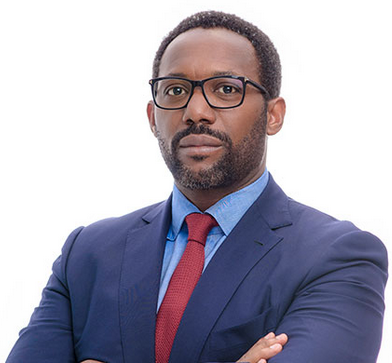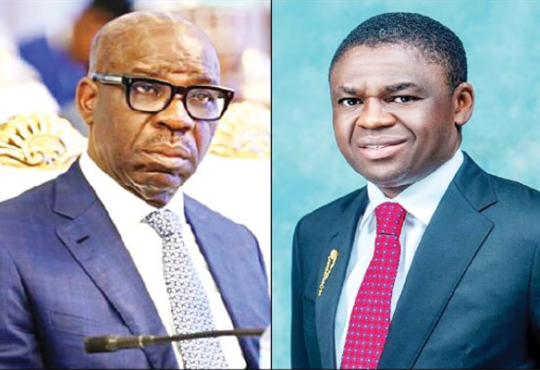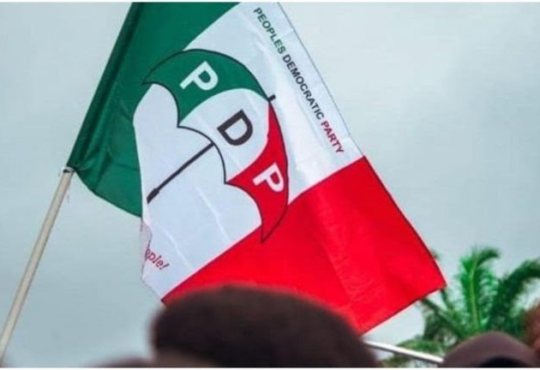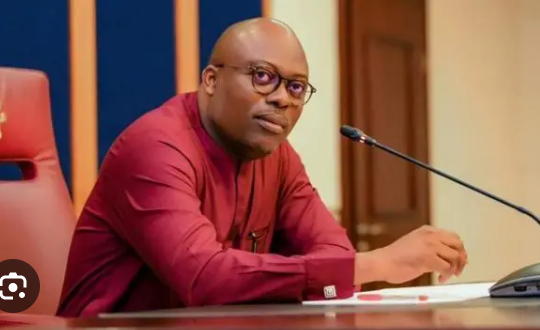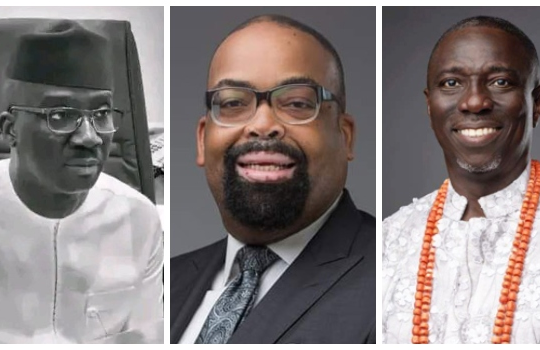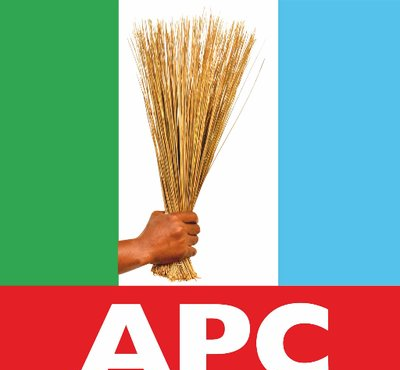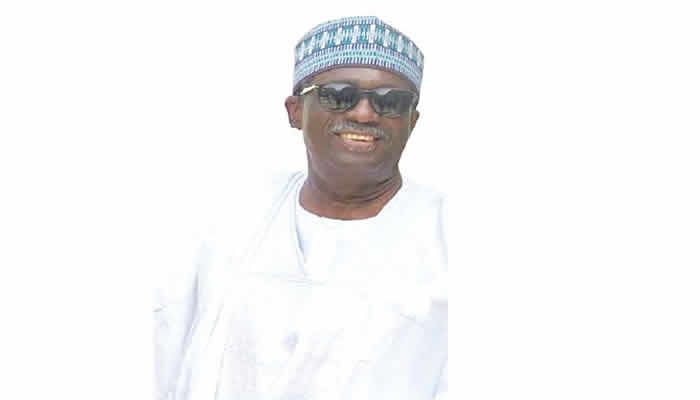
Former Nigerian ambassador to Mexico, Ogbole Amedu-Ode, speaks to AYOOLA OLASUPO, about the Senegalese election that led to the emergence of a 44-year-old Bassirou Faye as the President, what Nigeria can learn from it, among other issues
The Central Bank of Nigeria said there was an inflow of $1.5bn into the economy over the past few days. Is this a signal that the monetary policy employed by the apex bank is working positively?
My response to that is that this is a good sign, and we have no reason to doubt the authorities being people occupying responsible positions. They command the heights of the Nigerian monetary economy. So, it just shows that the policies put in place are working. I would say congratulations and hope that it continues to hit its target so that the economy can come to its roots as quickly as possible and reposition the Nigerian economy. It is not only the Nigerian or African economy but one that is also capable of attracting more investments and generating internal or domestic investment so that there will be a robust performance at the economic place. That will now help to resolve most of the things that we’re encountering as challenges.
I think that is kudos to the economy, the policymakers, and of course, those who are executing it. It shows that within a very short period, a whopping $1.5bn flows into the Nigerian economy. It would have been a better position to comment if these were just remittances from Nigerians in the Diaspora or if they are inflows into investments in Nigeria that will lead to what we like to call stabilising the macro-economy. It can sell good foreign exchange volatility, as we have been experiencing since last year.
With instability in the foreign exchange market, how will this affect the foreign direct investment in the country?
Now, if the foreign exchange markets are stable, it sends the right signals to foreign investors, but the stability of the foreign exchange markets is not just the only factor. There are other factors like the state of our infrastructure, utilities, and security itself and the abilities of the foreign investors to make their profits as it were.
Thank God, the Federal Government has told us that they have been able to pay off all legal foreign exchange owed, especially on the part of foreign airlines. They have been complaining that their money is trapped in the Nigerian economy.
These are positive signals going out there and we hope that they will cascade down to the very other levels of the economy to build the base of the Nigerian economic pyramid and then start to change that and get an upswing in economic activities, especially as we now prepare for the rains to come.
But I also believe that they are securing the rural areas from whence our food security, our food supply comes so that as the rains come in, farmers will be able to go into the fields to farm.
You identified infrastructure and security as a few of the factors that can also affect foreign direct investments and how investors are attracted to the country. Can you elaborate on this?
On infrastructure and utility, what is the state of our roads? Assuming you are a manufacturer, and your factory is in Lagos, and you manufacture, and you need to supply one of your distributors in Abuja, of course, the pains you have to go through to transport your goods are there. Again, there are issues with our public power supply because you are well-taxed.
So, that’s the area of utility whereas most manufacturers have to provide their source of power supply. So, if we can stabilise all these areas because we don’t give one factor and say this is the one that can solve all the problems. It should be systematic because it all has to work in tandem to deliver a robust economic performance. That is the point and the perspective I’m looking at.
Talking about what happened in Delta State, the killing of 17 military personnel and some policemen. What impression will this give to foreign investors about Nigeria?
Well, the signal going out there is that we are not secure and when you kill members of the armed forces, be it police, soldiers, Civil Defence, and others, these people in uniform represent state authority. So, if you kill them, you are challenging the authority of the state and that should not be taken lightly at all. It sends the wrong signal to the international community, especially the investor community.
We learnt that farmers are now scared of going to their farms in some parts of the country due to the spate of insecurity. What is your view about that?
Well, it is not for the authorities to establish their authority over the entire space of Nigeria. For that to be achieved, the different tiers of government will have to work in tandem with each other. The Federal Government superintending the state, and the state superintending the local government councils. So, we should take it one step at a time. We should all be able to secure the farmers and the farms.
Unfortunately, many people complain that the state governors are chief executive officers and the chief security officers of the state but they don’t have any authority over the police in their state-to-state command, and therefore, they are clamouring for state police, I wouldn’t know but whatever can secure our people because that is the first primary duty of any government; security of life and property of the citizens, we should take that seriously. Nobody wants to live in a state of insecurity.
What is your take on the creation of state police?
Are we cohesive enough to, have it? It is needed but my argument is the way our state governors go, they may personalise the state police whereby their perceived political enemies may become personal non-grata in that state. They use political thugs to do that these days and if they have the power over the police, it means the state police can be converted to their personal use.
I remember doing a report when I was serving in Mexico because Mexico had state police and it was not going well at all for the authorities in Mexico because it was easier for criminal gangs to penetrate police authorities at the lower rank of government at the state level than at the federal level. So, are we cohesive enough to have the state police? In contrast, what I think we should have is community policing. Community policing does not mean that each community will have its police. Community policing means that there will be policing whereby, for example in Yorubaland, every sector or side of a given town, there is always a Baale. So, the police commission there works directly with the Baale and other chiefs.
If a new visitor comes to your house, you go to the baale and say, ‘I have a visitor or two or three visitors who have just come in from so and so places, and they are staying with me.’ So, you will know the movement of people and you will know who who is or who is where. That is one of the aspects of community policing. Once there is any foul play in the community, the baale will inform the DPO in that community. Also, the hotels and hospitality centres around, once they detect anything, they send a report to the police.
That is why when you fill out the form, they will ask you, from where and going to where? And then they take these things. The moment you come with your passport, they take a picture of your passport, and then, you fill in the details. The police come about twice a day to collect some information. This is another aspect of it. Do we do that in Nigeria? I don’t know. You are supposed to fill in a form, and they will make a duplicate and your ID card or driver’s licence.
The police will come around at least once or twice a day and collect information about all the guests in that hotel. In that way, you get the movement of people in that area. This is how it is done. In China, the fact that they have the police, I cannot leave Oyo State and go to Osun State. I have to take an exit permit from the Oyo State Government and an entry permit from the Osun State Government. It’s the same thing in Morocco but here in Nigeria, you just get inside a vehicle and start moving around calling it freedom of movement.
Based on your experience with the diplomatic relationship with Mexico, I want you to elaborate on the historical relationship Nigeria has with Mexico and Morocco, and how it has evolved over the years.
Our relationship with Morocco has deepened by centuries because we formed one of the trading posts on the trade routes, which was part of the network of trade routes that were called the Trans-Sahara trade routes and then there is a particular connection between Kano and Morocco so much so that the leather that is most popular in Europe as Moroccan leather is not Moroccan leather. It’s Kano leather. Those leathers were done in Kano, and it was part of the things Kano sells to Morocco and Morocco now sells to Europe. So, the historical relationship has always been there between the people in Nigeria and Morocco but not all of it is very friendly.
How about Nigeria’s relationship with Mexico?
In Mexico, historically, with the records of slavery and slave trade that touched there, I did a dispatch when I was running the mission there and my idea is that a lot of Mexicans were coming for Nigerian visas, especially during the Osun-Osogbo festival, and a lot of them have discovered the adherence to the divinity of Ifa. We see how much of this adherence we can get and how much compassion we can have because it’s what we call soft power, and you have to ask the entire area there. The idea is to encourage Ifa priests to visit the place to encourage more coverts and strengthen the faith because they already have adherence to that.
What are your views on the current state of security cooperation between Nigeria and Mexico, especially in combating transnational threats such as drug trafficking and organised crime?
I am no longer in service. So, I wouldn’t know, but in terms of transnational crimes, this also includes terror. So, we have the ECOWAS approach to that. We cannot give a transnational approach to it because these crimes are transnational. They are transnational because they do not respect international borders, or they are committed across different international borders. Therefore, the result is that we will involve cooperation across international borders.
As a former ambassador, what can Nigeria learn from the recently concluded election in Senegal where 44-year-old Bassirou Faye emerged as the president?
For me, my message to Nigerian politicians is that they should allow democracy and democratic tenets to work in Nigeria. The common man in Nigeria wants democracy to work but I think the politicians are the ones who should be blamed. I remember serving on a committee way back in 2004, and each time we had a meeting, there were these politicians who would tell you when they want some money paid to them, and you say the system rejects it and you can’t pay it. The next thing they would say is ‘Were you there when I was snatching the ballot box?’ You see people come out to say openly that yes, they have committed electoral fraud, electoral malpractice, and all of that.
If we agree that democracy is what we are practising, we have to obey the rules and regulations of democratic practice, which is to respect the view of the people and all that. There was nothing that could have stopped the movement of the younger generation of Senegalese from emerging. This came through the will of the people, and that is why I feel Bassirou Faye emerged as the President of the Republic of Senegal, which is a good signal going out there. Other countries, accordingly, should see it so that they don’t allow and excite the boys in khaki to come and do what they have done in Mali and Burkina Faso.
In the build-up to the election, Sall had renounced a possible third term bid and considered that a change of government would take place. What is your take on this democratic decision?
Reasoning prevailed that he would change the government through electoral means. If reasoning had not prevailed and some khaki boys hijacked the power, the people would have said it was an undemocratic change of government and there would be sanctions and all of that. What we have now is to reflect the country’s history. We have a new, fresh-smelling administration to be run by the young man in his 40s, and we hope that they will be able to be guided right at this point for a better Senegal.
After three years of political crisis in Senegal, the outgone president, Macky Sall, considered holding the election for a new president. What message should this pass to other African countries?
Firstly, we have to learn from them, and for those who believe in gerontocracy, the time is on the side of the youth. The population figures and the dynamics of our demographic are on their side. In the case of Nigeria, where we have a lot of youths who want to rule, they want to waste their generation like they wasted our generation. So, the question to ask the younger generation is, are they prepared? Are they capable as a people? If they think you can and that it is in their time, it is either they make a success of it or a failure.
Will you say that the pressure mounted on Sall made him accept to conduct the election?
I think so. I believe it was the pressure on him because he would have thought about what was happening in Burkina Faso. The fact that Senegal had never experienced military rule would have been another factor, and he could not continue to tempt the military people and all of the rest. That could have been the reason, and they would have told him that he knew and saw what was going on.


